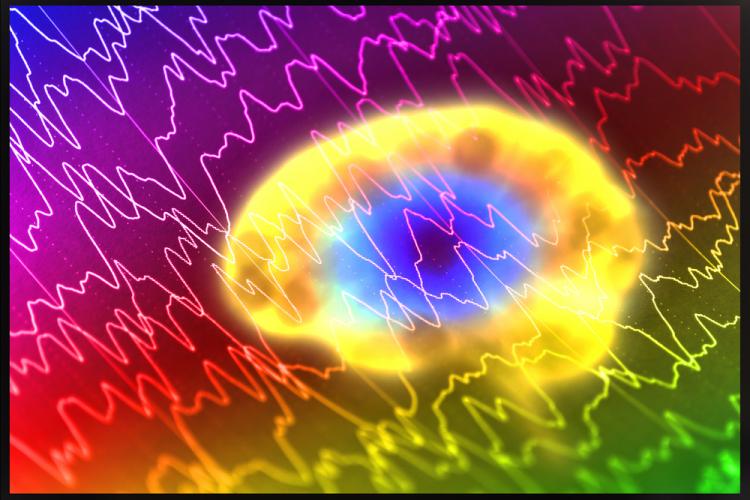The RADAR-CNS team won the Harald Frey prize for their work on the use of wearables to gauge the likelihood of sudden unexpected death in epilepsy

Wearable sensors can be used to detect seizures in people with epilepsy. The RADAR-CNS project suspected that they could also be used to detect not only the seizure itself, but also to measure post-ictal immobility, or the absence of motion following a seizure, a warning sign that the person is at increased risk of a complication that can cause sudden death.
In a study published in the journal Epilepsia, they set out to establish whether devices that measure motion, technically known as wearable accelerometers, could offer clues for the likelihood of sudden unexpected death in epilepsy (SUDEP). To do this, they fitted the device on people presenting with convulsive seizures at a hospital epilepsy monitoring unit. The patients were also monitored via video recording.
The results from the wearable’s algorithm and the results given by an expert who watched the video recordings were compared. Of 22 seizures, 20 of them were followed by post-ictal immobility while two were followed by agitation. The results from the algorithm matched that of the experts who watched the video. The study showed that wearables could offer hope as a continuous, non-invasive, long-term way to identify risk factors associated with seizures, with potentially great clinical importance.
The Harald Fey research prize
Awarded by the Michael Foundation, the Harald Fey Prize is an award for the best scientific research work regarding causes of SUDEP, as well as prevention methods and coping strategies. The 2021 prize was awarded to Elisa Bruno, Sebastian Boettcher, Andrea Biondi and Nino Epitashvili, who are part of the RADAR-CNS study.
Read more
Breathy, tense, tight, flat: a person’s voice can hint at depression, and AI can pick it up
RADAR-CNS turns symptoms into dance for Science in the City Malta festival
